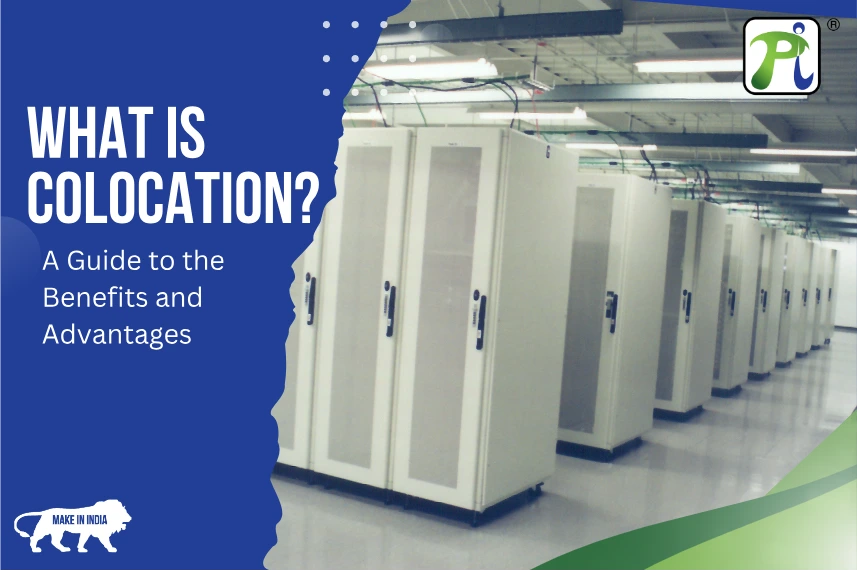We Will Get Back To You As Soon As Possible


Imagine a world where your data not only resides in a secure and robust environment but is strategically positioned to optimize performance. This is the promise that Colocation brings to the forefront of the digital era, revolutionizing the way we perceive and harness the potential of data centers.
Colocation, within the context of Cloud and Datacenter technology, is a strategic approach to IT infrastructure management where organizations rent space and resources within a third-party facility to house their servers, networking equipment, and other computing hardware. This shared facility is specifically designed and equipped to provide a secure and controlled environment for the efficient operation of servers and related components.
Colocation providers offer physical space within their datacenter facilities, allowing businesses to install and operate their servers. This space is often provided in the form of server racks or cabinets, ensuring a standardized and organized environment.
Colocation facilities are equipped with advanced power systems to support the energy needs of hosted servers. This includes redundant power sources and backup generators to ensure continuous operation, minimizing the risk of downtime.
To prevent overheating and maintain optimal operating conditions for hardware, colocation facilities implement sophisticated cooling systems. These systems regulate temperature and humidity levels to safeguard the integrity of the hosted equipment.
Colocation providers offer high-speed, redundant internet connections. This ensures reliable and efficient connectivity for the hosted infrastructure, enabling seamless communication and data transfer.
Security is a paramount consideration in colocation facilities. Providers implement comprehensive security measures, including access controls, surveillance cameras, biometric authentication, and environmental monitoring, to safeguard against unauthorized access and potential threats.
Colocation providers often offer remote hands support, allowing businesses to delegate certain tasks to the datacenter staff. This can include hardware installations, troubleshooting, and routine maintenance, providing an additional layer of convenience for clients.
Colocation agreements are typically governed by SLAs that outline the terms and conditions of service, including uptime guarantees, security protocols, and the level of support provided. These agreements ensure transparency and set expectations for both the colocation provider and the client.
Colocation offers a cost-effective alternative to constructing and maintaining a private datacenter. By leveraging shared infrastructure, organizations can significantly reduce capital expenditures, operational costs, and the burden of managing their own facilities.
A report indicates that businesses can achieve a significant reduction in capital expenditure by up to 30% when opting for colocation services, compared to maintaining an in-house datacenter. This cost-effectiveness enables companies to invest more in their core competencies, enhancing product development, market expansion, and overall competitiveness.
Top-tier colocation providers ensure highly reliable and redundant infrastructure. This includes advanced power systems, cooling mechanisms, and network connectivity, minimizing the risk of downtime and ensuring business continuity.
Businesses experience fluctuations in their IT demands. Colocation facilities are designed to accommodate scalability, allowing organizations to scale up or down based on their requirements without the need for extensive upfront investments.
Security is a paramount concern in the digital age. Colocation providers implement state-of-the-art security measures, including access controls, surveillance, and environmental monitoring, safeguarding the integrity and confidentiality of hosted data.
Colocation facilities act as connectivity hubs, providing access to high-speed, redundant internet connections. This enhances the overall network performance and ensures seamless connectivity for critical applications.
Outsourcing data center management to specialized colocation providers allows businesses to reallocate their focus and resources, fostering innovation and sustainable growth.

According to a study by Gartner , organizations that leverage colocation services witness an average improvement of 20% in their operational efficiency. This is attributed to the expertise of colocation providers in managing infrastructure, ensuring high availability, and optimizing resource utilization.
The global presence of colocation facilities serves as a strategic advantage for businesses aiming to broaden their reach and cater to diverse customer bases across various geographical locations. According to a survey, companies utilizing colocation services witness an average increase of 25% in their global market penetration.
Navigating the complex landscape of industry-specific regulations and data protection laws is a perpetual challenge for businesses. Colocation providers, however, offer a robust solution by demonstrating a high level of expertise in adhering to these standards and guaranteeing that hosted data aligns with stringent legal requirements.
A comprehensive analysis conducted by Ernst & Young reveal that colocation facilities invest heavily in state-of-the-art security measures and compliance protocols. This results in an 80% decrease in the likelihood of data breaches and regulatory violations for businesses utilizing colocation services, as compared to those relying solely on internal data management systems.
A colocation provider's proactive approach to compliance extends to continuous monitoring and adaptation to evolving regulatory landscapes. This ensures that businesses partnering with colocation services remain at the forefront of compliance, mitigating the risks associated with non-compliance penalties and reputational damage.
The robust disaster recovery mechanisms inherent in colocation facilities stand as a critical pillar for businesses seeking to fortify their resilience against unforeseen events. According to a report, companies leveraging colocation services witness an average 30% reduction in downtime during unplanned outages or disasters compared to those relying solely on in-house data management.
Furthermore, another study emphasizes that colocation providers offer a 20% improvement in recovery time objectives (RTOs) for businesses. This swift recovery capability is crucial for maintaining seamless operations, safeguarding critical data, and preserving customer trust even in the face of unexpected disruptions.
In an age where the pace of business operations is equivalent to a high-speed race, the importance of minimizing latency be overstated. Research indicates that companies leveraging colocation services experience a substantial reduction in latency, resulting in faster response times and heightened user experiences.
Beyond performance enhancements, the economic advantages of colocation stand as a beacon for businesses seeking efficiency and cost-effectiveness. In a survey conducted across diverse industries, it was revealed that companies adopting colocation strategies witnessed a remarkable 25% reduction in total operational costs. This data underscores the financial prudence of colocation, making it not just a technological upgrade but a strategic financial move.
In an era where data breaches loom large, the fortress-like security measures implemented by top-tier colocation providers offer a sanctuary for sensitive information. Statistics show that businesses entrusting their data to colocation facilities experienced a 40% reduction in security incidents compared to in-house data management. The impenetrable layers of security protocols implemented by leading colocation providers set a new standard for safeguarding valuable digital assets.
As we delve into the intricacies of colocation, it becomes evident that this paradigm shift in data management goes beyond mere technological evolution. It represents a strategic leap towards a future where businesses not only survive but thrive in the hyper-competitive digital landscape.
In conclusion, choosing a colocation solution can significantly enhance an organization's overall security posture and protect against potential cyber threats. By entrusting their valuable digital assets to a reputable colocation provider, businesses can focus on their core competencies and leverage the advanced security measures provided to stay ahead in the digital race. With colocation, companies can confidently embrace the future while ensuring the safety and integrity of their data. Colocation is not just a technical solution but a vital strategy for long-term success in the digital era.
Questions? We're here to help.
©2025 Pi DATACENTERS® Pvt. Ltd. All rights reserved
